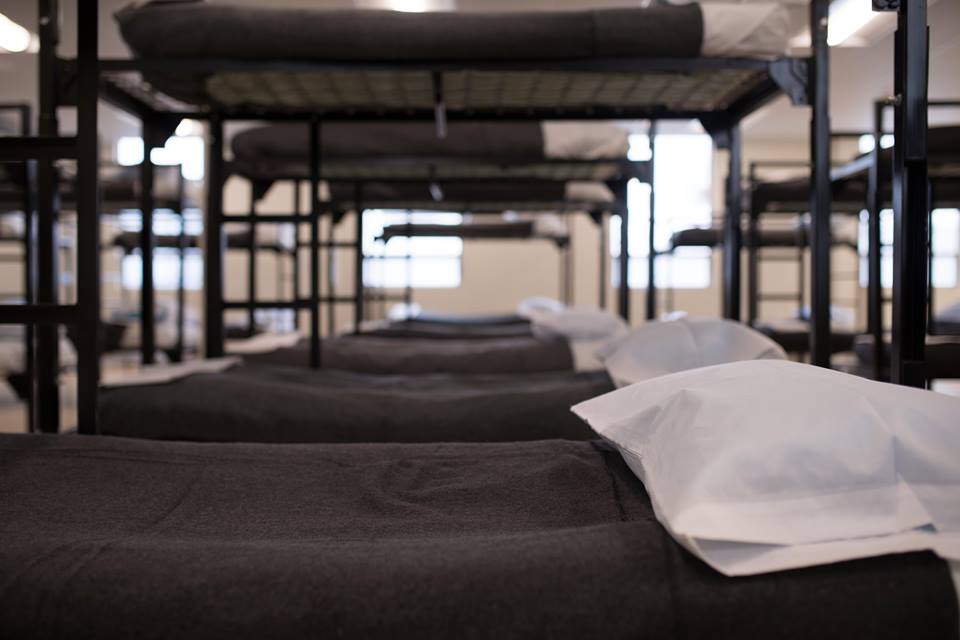A row of bunk beds at 112 Southampton Street Shelter. Photo: Zengzheng Wang.
Two Boston transitional programs designed to help homeless addicts recover and find housing while providing them shelter and aid are closing down due to a change in funding at the U.S. Department of Housing and Urban Development. The two programs are currently located at the 112 Southampton Street Shelter and together account for 40 transitional beds in the city.
In a statement to Spare Change News, the Boston Public Health Commission affirmed that this new budget has affected the SOAR and Safe Harbor, but emphasized that the physical beds will remain at the shelter. The budgetary changes reflect HUD’s new emphasis on housing first, and it has eliminated funding for transitional services in favor of programs that focus on securing permanent housing for the homeless.
“As part of this national shift towards housing first, the U.S. Department of Housing and Urban Development has curtailed its funding of transitional shelter beds… While these services are extremely useful, transitional beds are still shelter beds. They are not permanent solutions to homelessness,” read the statement. “Instead, HUD is now funding programs that enable homeless individuals to find permanent housing, along with the services they need to remain stable in housing. In addition, the City of Boston has added an additional $1 million to its budget to assist homeless individuals in finding and retaining permanent housing.”
The Boston Public Health Commission is currently creating individual plans for each guest that will help them find and maintain stable permanent housing, using resources from the Boston Housing Authority, the Department of Neighborhood Development, and the Mayor’s Bureau of Recovery Services.
Chief of housing and neighborhood development Sheila Dillon told WBUR that “We would not have made the decision to cut this program. But HUD has made it very clear to us … that they were not going to fund transitional housing or transitional programs anymore.” According to WBUR, HUD provided about $800,000 per year in funding to the programs.
Boston itself implemented a housing first model in 2015. In the past two years, it has housed nearly 800 chronically homeless veterans and 180 chronically homeless individuals. The city has functionally ended veteran’s homelessness in Boston (meaning most vets are housed and the remaining few in shelters are shortlisted for housing). It now hopes to end chronic individual homelessness by 2018. Additionally, Boston’s 311 workers now assist people looking for recovery services.
SOAR, which stands for Stability, Opportunity, Achievement, and Recovery, is a 20 bed program for clients who were employed, receiving benefits, or involved in an educational or job training program. Safe Harbor is a 20 bed program for clients that were both recovering from addiction and HIV positive. Both programs were initially located on the Long Island health campus and relocated to Southampton after the island’s 2014 closure.

Leave a Reply
You must be logged in to post a comment.